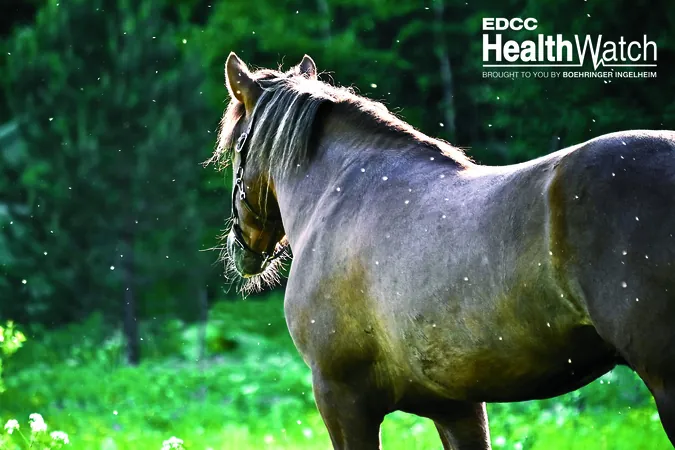
Urgent Health Warning: 3 Horses in Ontario Test Positive for Eastern Equine Encephalitis!
2024-10-09
Author: Emma
Urgent Health Warning: 3 Horses in Ontario Test Positive for Eastern Equine Encephalitis!
In a concerning development for horse owners in Ontario, three horses have recently tested positive for Eastern equine encephalitis (EEE), a serious mosquito-borne disease. These cases were reported in the United Counties of Prescott and Russell, Middlesex County, and the United Counties of Leeds and Grenville.
Case Summaries
The situation unfolded as follows:
- **Prescott and Russell**: An unvaccinated Quarter Horse cross was diagnosed with EEE on October 7, after showing acute neurologic symptoms such as severe ataxia and muscle tremors, which began on September 22. Unfortunately, due to the severity of her condition, she was euthanized.
- **Middlesex County**: A yearling filly, also unvaccinated, tested positive for EEE on October 7. She had displayed acute neurologic signs starting on September 21 and sadly, did not survive.
- **Leeds and Grenville**: In another case, an unvaccinated pony mare showed clinical signs on September 15, including circling, head pressing, and stumbling. She tested positive for EEE on October 2 and had to be euthanized as her condition deteriorated.
What is Eastern Equine Encephalitis?
Eastern equine encephalomyelitis is caused by the Eastern equine encephalitis virus, which primarily resides in wild birds. The virus is transmitted to mosquitoes that feed on these birds and can then infect humans and horses. Despite the tragic outcomes for these horses, it is important to note that they do not produce sufficient viral loads to spread the disease to other animals or humans.
EEE is recognized for its high mortality rate in affected horses and is considered one of the deadliest mosquito-borne diseases in North America. Public health experts urge vigilance, particularly in regions where EEE is on the rise.
Preventive Measures Against Mosquito-Borne Diseases
To protect your horses from EEE and other mosquito-borne illnesses, consider these proactive strategies:
- Ensure your horses are vaccinated against EEE.
- Keep horses in enclosed barns during peak mosquito hours, especially at dawn and dusk.
- Eliminate standing water around your property to reduce mosquito breeding sites.
- Use insect repellents designed for use on horses.
As the mosquito season stretches into the fall, horse owners should remain vigilant and informed about the risks associated with EEE. Stay tuned for further updates and health advisories to keep your equine companions safe!









 Brasil (PT)
Brasil (PT)
 Canada (EN)
Canada (EN)
 Chile (ES)
Chile (ES)
 España (ES)
España (ES)
 France (FR)
France (FR)
 Hong Kong (EN)
Hong Kong (EN)
 Italia (IT)
Italia (IT)
 日本 (JA)
日本 (JA)
 Magyarország (HU)
Magyarország (HU)
 Norge (NO)
Norge (NO)
 Polska (PL)
Polska (PL)
 Schweiz (DE)
Schweiz (DE)
 Singapore (EN)
Singapore (EN)
 Sverige (SV)
Sverige (SV)
 Suomi (FI)
Suomi (FI)
 Türkiye (TR)
Türkiye (TR)